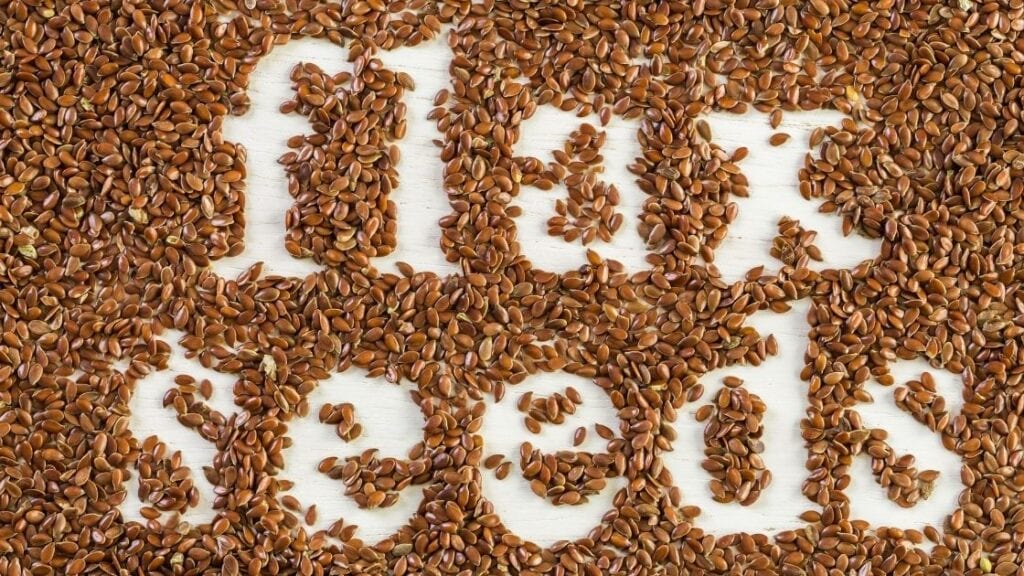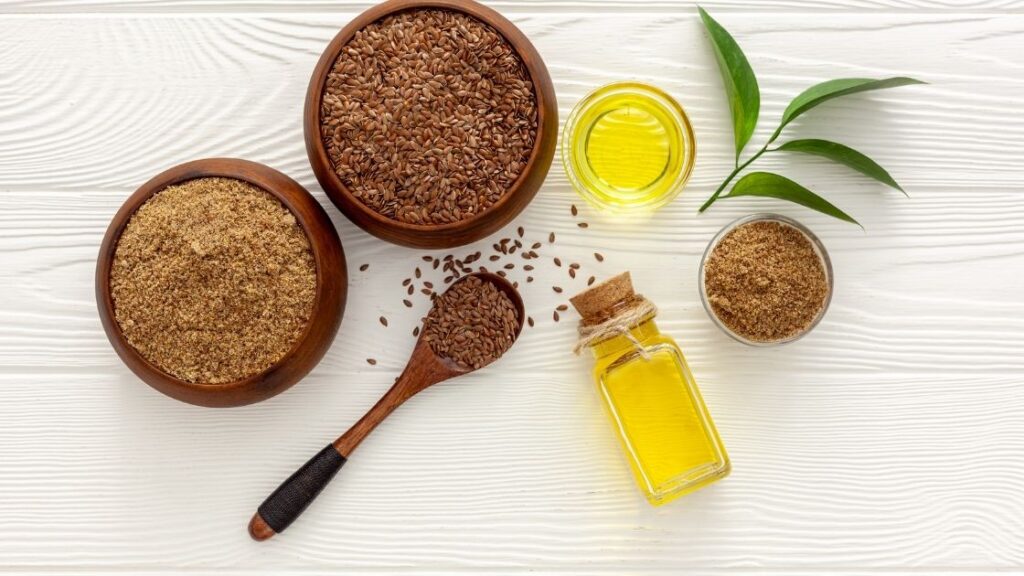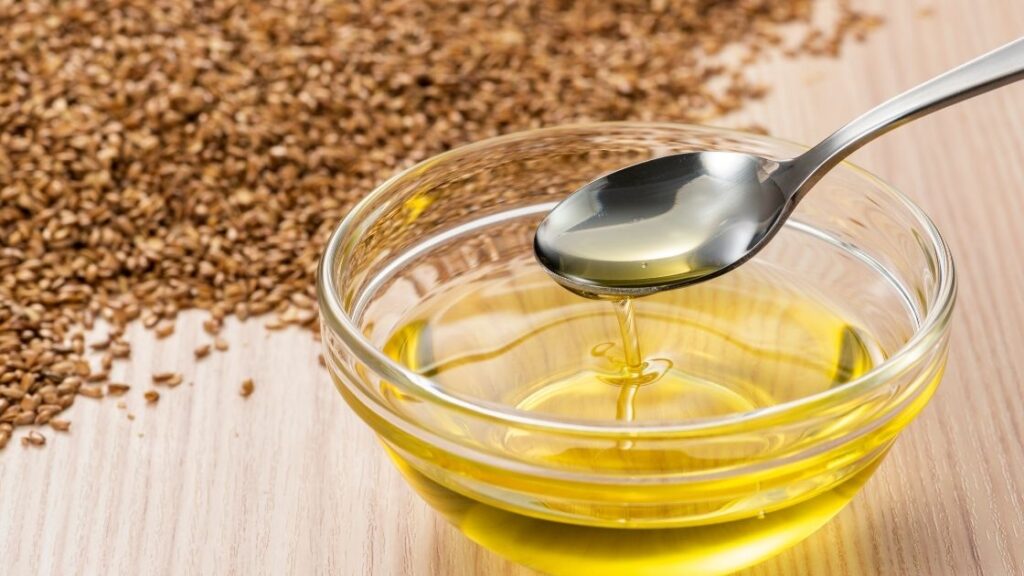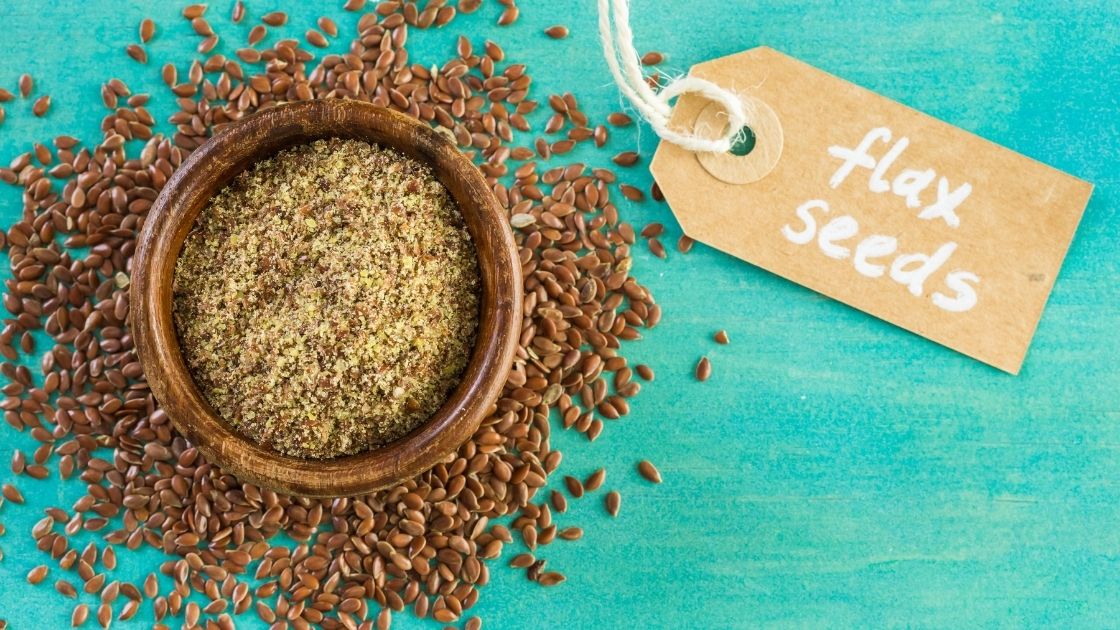- It is a nutritional powerhouse, rich in essential fatty acids, fiber, and vitamins
- It can aid in weight loss by promoting satiety and improving digestion
- They are high in omega-3 fats, which support brain and heart health
- They contain dietary fiber that can help lower blood pressure and support healthy bones
- Incorporating them into your diet is easy and versatile and can be added to meals
Move over, chia; here we’re returning to basics with the good old flaxseed.
Used for centuries, flax is one of the oldest crops cultivated by man.
But did you know that this surprising tiny seed is actually a weight-loss warrior?
That’s right, not only a nutritional superfood, the benefits of flax seeds for weight loss have already been discovered by many women around the globe.
Read on to uncover the surprising secrets flaxseed has to offer you.
Why is Flaxseed a Superfood?
The humble flaxseed (which you may also know as linseed) might not look like much, but this tiny, hard seed is a nutritional powerhouse.
Flaxseeds are the richest known source of plant-based omega 3 and 6 essential fatty acids and provide manganese, dietary fiber, healthy fat, and some B vitamins.
Flaxseeds contain everything your body needs to survive and thrive and elevate the flax to one of the healthiest superfoods.
There are also so many flaxseed benefits we will know gradually.

Health Benefits of Flax Seeds
The health benefits of flax seeds have been renowned for centuries.
King Charles the Great even passed a law requiring his subjects to eat them!
So, why are these little seeds so powerful?
- Flax Seeds Are Loaded With Nutrients
Highly nutritious, flaxseeds contain calcium, iron, magnesium, manganese, and vitamin B1, among other essential vitamins and nutrients.
Flaxseed powder and flaxseed flour are available in the market. Eating flax seeds is very helpful and is considered a healthy eating habit.
- Flax Seeds Are High in Omega 3 Fats

Flaxseeds are one of the best animal-free sources of omega-3 fatty acids.
In flax, this omega compound is called ‘Alpha Linoleic Acid’ or ALA. ALA is essential for healthy cell, eye, and brain growth.
There are even studies linking ALA omega fats with reduced susceptibility to degenerative brain diseases and some forms of dementia such as AD (Alzheimer’s Disease), Parkinson’s Disease, etc.,
- Flax Seeds Are Rich in Dietary Fiber
Scientific research has shown that dietary fiber can aid weight loss because it slightly slows the absorption of carbohydrates – thus lowering blood sugar levels after a meal.
Adequate levels of dietary fiber are necessary for proper digestion and elimination, and each serving of flaxseeds will provide you with about 2.8g of soluble fiber.
- Flax Seeds May Lower Blood Pressure
This is particularly significant for those with high blood pressure, as the fiber in flaxseeds will help lower that so-called ‘bad’ cholesterol level.
- Flax Seeds May Help The Heart And Bones
Flax intake has been shown to support healthy bones and cardiovascular health due to its magnesium content, keeping bones strong – particularly important for women over 45 who may be at risk of osteoporosis.
- Flax Seeds Can Reduce Hair Loss.
Flax seeds are a rich source of lignans – antioxidants that may act as phytoestrogens, promoting strong and healthy hair growth.
The omega-3 fatty acid compounds are also essential to healthy hair follicles to keep your hair strong and shiny.
- Flax Seeds Can Aid Weight Loss and Improve Metabolism
Ground flaxseed is the most commonly used plant source of lignans, a type of phytoestrogen found in plants that reduce one’s risk for various diseases and improve metabolism.
In addition to its various other benefits, Flaxseeds can help boost nutrition while losing weight naturally!
Benefits of Flax Seeds for Weight Loss
Not only healthy but adding a serving of flaxseeds into your diet is a great way to lose weight.
Flax has been a popular food amongst dieters for years – let’s check out the health benefits of flax meal.
- It may control weight by stimulating hormone production, which produces satiety (feeling full). This may be an essential consideration if, like us, you tend toward overeating – especially with high-calorie, low-fiber snacks like chips and candy.
- It helps stimulate digestion and enhance the release of bile into your system. This will also reduce bloating and leave you feeling lighter and more energetic. It may also have the bonus of lowering cholesterol, which is essential for regulating blood sugar levels.
- It helps keep fat away and maintain healthy heart tissue by reducing inflammation, maintaining heart rhythm health, and lowering triglycerides (bad fat in the bloodstream).
- It contains soluble fiber that can help you feel full longer so that fewer “empty calories” – like those found in soda and other sugary snacks are consumed.
How to Use Flax Seeds
So, now you know all about the beautiful benefits of flaxseeds for weight loss… but how should you eat them?
Because of their high fiber content, drinking plenty of water when consuming flax is essential.
Most healthcare specialists recommend that you drink 2.7 liters of water daily, and you may like to include an extra cup when using flax.
This will also help keep you feeling full, reduce your appetite, and assist in weight management.

Whole vs Ground?
You may have also noticed that flaxseeds come in two forms.
In the grocery store, you’ll usually find not only whole Flaxseeds but also ground Flaxseeds, also known as Flaxseed Meal.
Most larger health food stores will even offer flaxseed oil; however, this does not contain all the benefits of the whole seed and will comparatively lack all the goodies like omega-3, lignans, and fiber.
It is also higher in calories and fat, and overconsumption can lead to weight gain.
So, whole seeds are ground seeds?
The truth is, our bodies actually can’t digest whole flaxseeds all that well.
They must be crushed to get all the important nutrients and benefits out of the flaxseed.
The solution?
Ground flaxseed, of course!
But don’t worry if you can’t find any in your local grocery or health food store.
Ground flax can be made at home pretty quickly using a clean coffee grinder or a good old mortar and pestle if you want to get in an extra workout!
Flax also has a mild, nutty taste that won’t overpower your food and works well in almost anything.
Try making flax a part of every meal.
Breakfast
- Flaxseeds go great sprinkled on muesli, cereal, or granola
- Are a delicious addition to yogurt or kefir
- Work well in an overnight oat or acai bowl
- Baking muffins, pancakes, or waffles? Why not add a spoon of flax to the batter?
- Can be used as an alternative to chia seeds in most recipes
- A healthy smoothie can become even healthier with an added serving of these superfood seeds
Lunch
- Scatter some in your next salad for a satisfying crunch
- Thicken soups or stews with a spoon of flaxseeds
- Put some in your next PB&J for added texture and omega-3
- Hummus with added flax makes a great snack
Dinner
- Make crunchy flaxseed topping for your next casserole or baking dish
- Crumb fish or other lean meats in ground flaxseeds instead of breadcrumbs for a keto-friendly alternative
How Many Flaxseeds Per Day?
So, how many raw flax seeds should you eat to get all those amazing benefits? The US Department of Agriculture recommends that women consume about 2 to 3 tablespoons (30 grams) for optimal health benefits, that’s around 140 – 270 whole flaxseeds every week!
Just remember, everything works best in moderation, and flaxseeds are no exception.
Side Effects of Flaxseed?
So, do you need to be aware of any side effects of eating flaxseed?
Being a seed, not a nut, allergic reactions are rare.
However, there is a risk, and if you find yourself experiencing any allergic reactions (itching, swelling, redness, or hives), discontinue use immediately and seek medical advice.
If you have any underlying health conditions, it’s always best to consult a doctor or nutritionist before changing your diet.
They will be able to advise of any precautions and recommend supplements to ensure you are following a healthy diet.
Most side effects will come from consuming too much fiber with insufficient water. In this case, you may notice gastrointestinal upsets, which may include:
- Intestinal Obstruction
- Bloating
- Stomach Ache
- Constipation
- Gas (flatulence)
Remember to drink a warm glass of water before every meal if you notice any of these problems.
Conclusion
So there you have it! If you want to lose a few pounds, adding a serving of flax into your daily diet can work wonders.
It’s also super healthy, and the health benefits of flax have been renowned for centuries.
While the laws of King Charles the Great may not have persevered through to today, try making a serving of flax a part of your daily diet and see how your body feels – and how it looks!

Rosily Ryan is an accomplished health and fitness writer, editor, and health activist based in Sydney, Australia. With a wealth of knowledge and expertise in the health and nutrition industry, Rosily has established herself as a trusted authority in the field. She has contributed to several leading publications, including Pure Green Magazine, where her work has been widely recognized for its insightful analysis and engaging style.
Rosily’s passion for health and fitness is evident in her writing. Her extensive research and first-hand experience in the field allow her to provide valuable insights and practical advice to her readers. As an advocate for healthy living, Rosily has been actively involved in various health initiatives and campaigns that aim to raise awareness about the importance of physical and mental well-being.









